Fundamental research conducted by MSLU scholars laid the foundation for the most significant areas of study:
- text and discourse theory;
- speech science theory;
- the cognitive basis and cognitive functionality of language/speech;
- general translation theory, including literary, poetic, simultaneous, film and audiovisual translation;
- multi-level theory of primary and secondary linguistic personality;
- theory of meaning as an extralinguistic phenomenon;
- linguodidactics as a branch of methodological science paving the way for foreign language teaching methodology.
Fundamental research has always been accompanied by numerous applied scientific works, in which the scientific basis that was developed during the course of scientific work was refined and applied to specific languages (language pairs), resulting in the formation of a number of scientific schools and directions at MSLU that have gained wide recognition in Russia and abroad:
The stylistic school of Professor I. R. Galperin
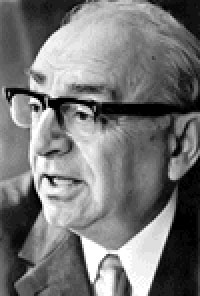
Stylistic research in the field of English language and speech, and later work in the field of general stylistics, carried out by Professor I. R. Galperin and his students in the mid-1950s, developed into an independent scientific direction, transforming stylistics from a marginal sphere of rhetoric and literary studies into an independent discipline, whose unconventional prominence became particularly evident in the era of post-paradigmatic linguistics: text theory, cross-level principles of interpreting the content of discourse units, hermeneutic approaches to establishing the true informativeness of works of artistic speech.
Professor L. S. Barkhudarov’s Grammar School
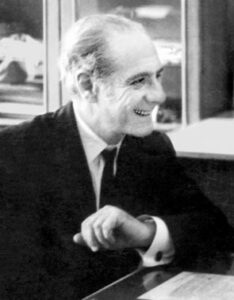
In the 1960s and 1970s, this school laid the foundation for many new directions in the study of English grammar, such as the structural syntax of simple and complex sentences, transformational-generative grammar of the English language, semantic syntax, issues of valency of parts of speech, grammatical homonymy and synonymy.
School of English Phonetics by Professors A. M. Antipova, D. A. Shakbagova, T. I. Shevchenko, and others
This school develops the linguistic ideas of one of the founders of the department, the prominent English scholar Georgy Petrovich Torsuev.
Professor A. V. Kunin’s School of English Phraseology
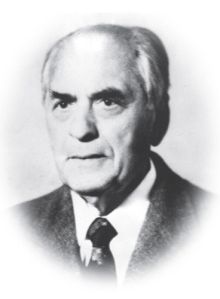
Doctor of Philology, Professor, Honoured Scientist of the Russian Federation A. V. Kunin is credited with pioneering the theory of general and English phraseology as a linguistic discipline.
The scientific school of English lexicology of Professors G. Yu. Knyazeva, Z. V. Semerikova, E. G. Belyaevskaya, and others
It goes back to the ideas of the founder of the theory of words in Russian English studies, Prof. A. I. Smirnitsky of Moscow State Linguistic University.
Professor I. I. Chernysheva’s school of German phraseology – constructing a theory of the lexicon and its supra-word formations, i.e. phraseology
The achievements of this school are reflected in 60 candidate and three doctoral dissertations, four authorial scientific monographs, and dozens of collective monographs. This concept is widely known abroad, and its priorities are attested to in many works by German and Swiss authors.
Forty-two master’s theses and twelve doctoral dissertations have been defended within this school.
Professor E. H. Riesel’s School of Functional Stylistics of the German Language
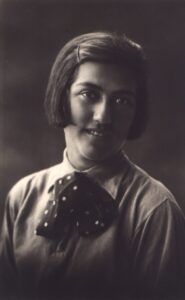
The school of functional stylistics of the German language by Professor E. H. Riesel, winner of the Weiskopf Prize, based on the concepts of micro- and macro-systematics, on the idea of the cumulative nature of the paradigmatic and syntagmatic aspects of all stylistic phenomena, and on a comprehensive linguistic and literary study of the style of fiction. Several doctoral and more than 50 candidate dissertations have been defended in line with this school.
Professor E. I. Shendels’ School of Stylistic Grammar
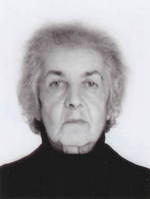
The school is based on a structural-semantic and functional-communicative concept of interpreting all aspects of the language system.
School of French Phonetics by Professor N. G. Baryshnikova and Professor N. I. Portnova
Main areas of interest: communicative phonetics and communicative phonology, oral speech culture, sociophonetics and phonostylistics of the French language.
School of Verbal and Nonverbal Aspects of Speech Communication by Professor Gorodnikova M. D.
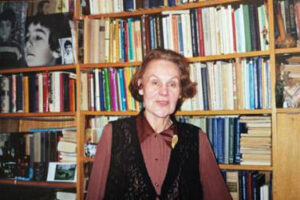
The main issues addressed by this school of thought are the socio-cultural processes of interaction and text creation, as well as verbal and non-verbal correspondences between concepts and human cognitive structures.
School of Linguistic Translation Theory (Professors L. S. Burkhodarov, S. F. Goncharenko, V. N. Komissarov, V. Yu. Rosenzweig, G. V. Chernov, A. D. Shvetser)
It is widely known in Russia and abroad.
School of Applied and Experimental Linguistics Prof. R. K. Potapova, Yu. N. Marchuk, E. I. Korolev
This is an extraordinary, interdisciplinary field of linguistics that requires proficiency in the latest information technologies, modern software tools, database management systems, the latest analysis programmes in any field of automated dictionaries, information retrieval systems, as well as automatic speech recognition systems based on in-depth linguistic knowledge.
Professor B. Yu. Gorodetsky’s School of Linguistic Semantics Semantic Typology of Natural and Artificial Languages
The main results of this school’s work are related to the construction of semantic metalanguages, new types of dictionaries, thesauri, semantic algorithms, communication models, and the identification of semantic universals.
School of History, Historiography of Linguistics and Comparative Linguistics of Professor E. A. Makaev, Professors T. A. Amirova, G. S. Klychkova, E. S. Kubryakova, M. M. Makovsky, and others
School of Text Theory and Communicative Linguistics of Professor G. V. Kolshansky, Professors I. R. Galperin, O. I. Moskalskaya, E. I. Shendels, S. I. Kanonich, O. L. Kamenskaya, T. M. Dridze, and others)
One of the leading schools that considers a coherent, connected and complete text to be the only full-fledged unit of communication and studies the patterns of its creation and functioning in the communication process. The scientific achievements of this school are recorded in dozens of monographs (including G. V. Kolshansky’s Contextual Semantics and Communicative Function and Structure of Language).
The psycholinguistic school of speech production and perception, speech ontogenesis, intercultural communication issues, psycholinguistic issues in foreign language acquisition, issues in the formation and functioning of mental images, and their role in intra- and intercultural communication by professors E. F. Tarasova, Yu. A. Sorokin, R. M. Frumkina, A. M. Shakhnarovich, and others
School of Linguodidactics as Methods of Teaching Foreign Languages in Schools and Non-Language Universities by Professors G. M. Frolova, N. I. Gez, P. V. Elukhina, I. P. Pavlova, and others
This school has not only trained several hundred candidates of pedagogical sciences for all CIS countries and many foreign countries, but has also created basic sets of textbooks in English, German and French for specialised schools in Russia and for domestic technical universities.
School of Intensive Foreign Language Teaching Methods for Adults by Professor S. I. Melnik
She has developed methods for intensive teaching of European languages to adults. A number of candidate dissertations have been defended within the framework of the school, and one doctoral dissertation is currently being prepared.
School of Andragogy and Pedagogical Anthropology of Professors N. N. Nechaeva, A. P. Bulkina, S. I. Zmeeva, A. A. Verbitsky, T. A. Khmel, P. G. Buga, and others
The school’s main areas of focus are: professional and pedagogical training of philology students, the theory of professional consciousness formation, contextual learning in higher education, and major trends in higher education abroad. The school works closely with the Russian Academy of Education, and its scientific achievements are reflected in many monographs and dozens of master’s and doctoral theses.
School of Linguodidactics as the Basis for Foreign Language Teaching Methods in Language Universities by Professors B. A. Lapidus and A. A. Mirolyubov
This school develops concepts for training professional bilingual and multilingual specialists in the field of interlingual and intercultural communication, i.e. foreign language teachers and translators. Dozens of master’s theses have been written in line with the ideas of this school, and work is underway on two new doctoral research projects.
School of ‘Contemporary Russian Literary Language and Speech Culture’ by Professors A. A. Bragin and G. N. Ivanov
The school has trained dozens of candidates of science for Russia, CIS countries and other countries.
School of Ancient Greek and Roman Literature and Culture, Prof. V. L. Yarkho
Dozens of doctoral and candidate dissertations have been defended in line with and under the influence of this school. In total, Prof. V. N. Yarkho has more than 290 publications to his name, including a number of annotated editions of Athenian playwrights (Aeschylus, Euripides, Aristotle; the final work can be considered a single-volume collection of Sophocles’ tragedies and fragments. — Moscow, 1980, and a collection of Menander’s comedies and excerpts. — Moscow, 1982, using the latest papyrus publications). The last major work carried out under the guidance of V. N. Yarkho is the ‘Dictionary-Reference Book on Ancient Culture,’ compiled by order of the publishing house ‘Higher School.’ In terms of methodology, V. N. Yarkho’s interests are focused on the development of a Latin language course specifically designed for students of foreign language departments (four editions of Latin language textbooks). Currently, the department staff is successfully developing the achievements of V. N. Yarkho’s school under the leadership of Prof. M. A. Tariverdieva.